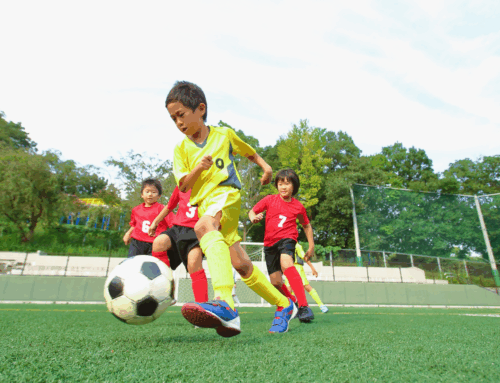Get our exclusive report. Download the iSport360 Club Switching Report Here – For Club Admins, Rec Leaders and Coaches.
Strategies to Boost Confidence In Your Athlete
Confidence is a fundamental ingredient for success in sports and confidence in youth athletes is critical to development. It’s the belief in oneself, the trust in one’s abilities, and the resilience to overcome challenges. As parents, coaches, and mentors, we play a crucial role in nurturing and bolstering the confidence of young athletes. Whether they’re just starting out or striving for greatness, here are some effective strategies to help increase confidence in your athlete:
Set Realistic Goals:
Goal-setting is a powerful tool for building confidence and motivation. Encourage your athlete to set both short-term and long-term goals that are specific, measurable, achievable, relevant, and time-bound (SMART). Celebrate their progress along the way, and help them adjust their goals as needed based on their performance and development.
Focus on Effort, Not Just Results:
Emphasize the importance of effort and hard work over outcomes. Praise your athlete for their dedication, commitment, and resilience, regardless of the outcome of their efforts. By recognizing their effort, you help them develop a growth mindset and a sense of control over their performance.
Provide Positive Feedback:
Offer specific and constructive feedback that highlights your athlete’s strengths and areas for improvement. Focus on what they’re doing well and offer guidance on how they can continue to grow and develop. Avoid overly critical or negative feedback, as this can undermine their confidence and motivation.
Encourage Risk-Taking and Learning from Failure:
Encourage your athlete to step out of their comfort zone and take risks in their training and competition. Emphasize that failure is a natural part of the learning process and an opportunity for growth and improvement. Help them reframe setbacks as learning experiences and encourage them to bounce back stronger than before.
Teach Mental Skills and Strategies:
Mental skills training is just as important as physical training in sports. Teach your athlete techniques such as visualization, positive self-talk, and mindfulness to help them stay focused, calm, and confident under pressure. Practice these skills regularly to reinforce their effectiveness.
Create a Supportive Environment:
Foster a supportive and encouraging environment where your athlete feels safe to take risks and make mistakes. Be their biggest cheerleader and advocate, and surround them with positive influences, including coaches, teammates, and mentors who believe in their potential.
Celebrate Successes, Big and Small:
Celebrate your athlete’s successes, no matter how small they may seem. Whether it’s a personal best, a game-winning goal, or simply showing up and giving their best effort, acknowledge their achievements and let them know that you’re proud of them. This validation reinforces their confidence and motivates them to continue striving for excellence.
Lead by Example:
As a parent or coach, your behavior and attitude have a significant impact on your athlete’s confidence. Lead by example by demonstrating confidence, resilience, and a positive mindset in your own pursuits. Show them that setbacks are temporary and that with perseverance and determination, anything is possible.
Provide Opportunities for Mastery:
Give your athlete opportunities to master new skills and challenges at their own pace. Break down complex skills into smaller, more manageable tasks, and provide opportunities for them to practice and refine their techniques. As they experience success and mastery, their confidence will naturally increase.
Promote Self-Efficacy:
Self-efficacy, or belief in one’s ability to succeed in specific situations, is a key predictor of confidence and performance. Help your athlete develop self-efficacy by providing them with opportunities to experience success, offering encouragement and support, and helping them develop a repertoire of effective coping strategies for dealing with challenges.
Confidence is a critical factor in athletic success, and as parents, coaches, and mentors, we have the power to cultivate and nurture it in our young athletes. By setting realistic goals, providing positive feedback, teaching mental skills, creating a supportive environment, and leading by example, we can help our athletes develop the confidence they need to excel both on and off the field. With confidence as their foundation, they’ll be poised to achieve their full potential and become champions in their sport and life.
iSport360 is the only app that does it all for youth sports. For more information on what we do, click here.
About the author:
Amy Masters is a sports mom, coach, and club administrator. She has been coaching youth sports for more than 10 years. She started Jr Lions Field Hockey, the youth recreation program for the Hunterdon County community growing it from 40 players in year 1 to 150 players by year 3. A few years later, she saw the love and competitiveness grow then started Omega Field Hockey Club serving NJ and PA players. Before coaching, she was a collegiate field hockey player for Lock Haven University. In her spare time (lol), she is head of marketing for iSport360 and the co-editor of the Youth Sports Survival Guide. The Youth Sports Survival Guide is the largest youth sports newsletter in the world.
Learn more or request a demo of our youth sports software that is helping teams improve communication, organization and player development.
July 2, 2024





